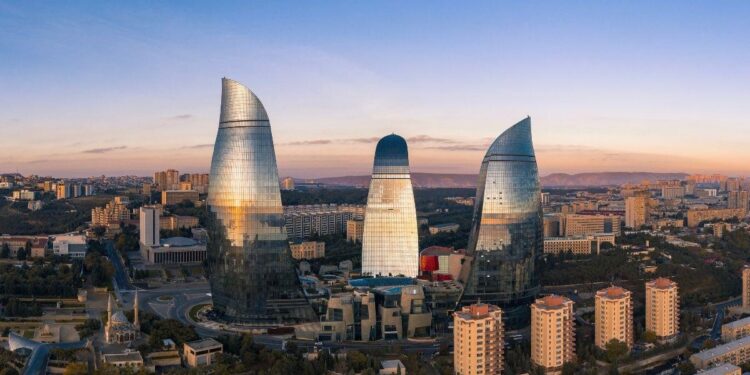Baku, Azerbaijan – In a recent development underscoring ongoing regional tensions, Azerbaijan has publicly highlighted Armenia’s refusal to grant free transit access to the Nakhchivan Autonomous Republic, an Azerbaijani exclave separated from the mainland by Armenian territory. The Azerbaijani government, supported by photographic evidence released through Trend News Agency, asserts that Armenia’s failure to provide unobstructed and cost-free connectivity violates existing agreements and undermines efforts to normalize relations between the two neighbors. This latest accusation adds a new layer of complexity to the fragile peace process in the South Caucasus.
Azerbaijan Highlights Armenia’s Denial of Free Access to Nakhchivan Corridor
Azerbaijan has reiterated its stance regarding Armenia’s persistent restrictions on the transit corridor connecting to Nakhchivan, emphasizing that the blockade severely undermines regional connectivity and economic stability. The Azerbaijani government accuses Armenia of violating international agreements by denying free access, which complicates the movement of goods and people, ultimately affecting the enclave’s development and the broader South Caucasus integration efforts.
- Restricted transit limits humanitarian aid and essential supplies to Nakhchivan.
- Impediments impact diplomatic efforts aimed at normalizing regional relations.
- Concerns raised over the violation of transport and communication commitments post-ceasefire.
| Aspect | Status | Impact |
|---|---|---|
| Transit Permission | Denied | Restricted trade and travel |
| International Commitments | Violated | Increased diplomatic tensions |
| Regional Stability | Compromised | Hindered cooperation |
Impact of Restricted Connectivity on Regional Stability and Trade
The continuing restrictions imposed by Armenia on transit routes to Nakhchivan have sparked significant concerns over regional stability. By denying free and accessible transport corridors, economic activities and cross-border cooperation face considerable setbacks, jeopardizing long-term peace efforts in the South Caucasus. This blockade not only strains diplomatic relations but also exacerbates tensions that hinder collaborative infrastructure projects crucial for regional integration.
Key consequences of restricted connectivity include:
- Disruption of supply chains impacting local businesses and communities.
- Limited access for humanitarian aid and essential goods to Nakhchivan.
- Reduced opportunities for trade diversification and growth.
- Heightened political friction between Azerbaijan and Armenia.
| Impact Area | Effect |
|---|---|
| Trade Volume | Decreased by 35% in blocked sectors |
| Humanitarian Access | Severely limited |
| Border Cooperation | Stalled |
Calls for Diplomatic Engagement and Guarantee of Unhindered Transit Rights
Azerbaijan has intensified calls for immediate diplomatic dialogue aimed at resolving longstanding challenges surrounding Nakhchivan’s connectivity. The Azerbaijani government emphasizes the urgency of establishing unhindered transit routes through Armenian territory to ensure seamless movement of people and goods. This stance reflects concerns over Armenia’s continuous restrictions, which hinder economic and social integration between Azerbaijan proper and its exclave.
In response, Azerbaijani officials have outlined several key demands, including:
- Guarantee of free transit without arbitrary closures or delays.
- Adherence to international agreements ensuring corridor rights and security.
- Regular monitoring by neutral observers to prevent obstructions.
| Aspect | Current Status | Azerbaijan’s Demand |
|---|---|---|
| Transit Access | Restricted | Unhindered |
| Border Controls | Strict & Sporadic | Smooth & Predictable |
| International Oversight | Absent | Established |
Key Takeaways
As tensions linger over regional connectivity, Azerbaijan’s recent spotlight on Armenia’s refusal to grant free access to the Nakhchivan Autonomous Republic underscores ongoing challenges in cross-border cooperation. The issue remains a significant point of contention, reflecting broader geopolitical complexities in the South Caucasus. Observers continue to watch closely as both nations navigate diplomatic channels amid calls for improved connectivity and stability in the region.
















